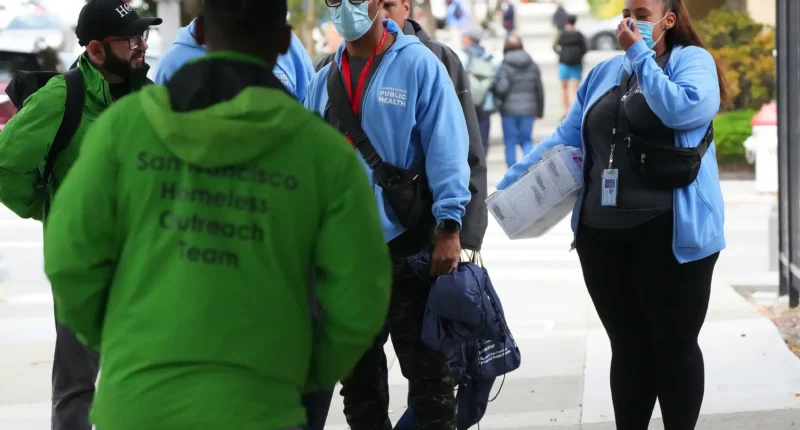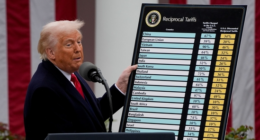In a move to address the ongoing issue of homelessness, San Francisco officials have launched their 16th attempt this year to clear a notorious encampment near the Department of Motor Vehicles (DMV) office by Golden Gate Park. Despite previous efforts to clear the sidewalks, the homeless individuals who have gathered in tents remain steadfast, with little indication of relocating voluntarily.
On Monday, city crews were set to dismantle the encampments that have become a fixture near the DMV. In preparation, Mayor London Breed had issued a stern warning, asserting that this attempt would be different from the past fifteen. The mayor’s office reported that the homeless campers had collectively rejected 89 offers of shelter this year, fueling Breed’s determination to enforce a stricter policy.
At a rally just days before the clear-out, Breed expressed her frustration and resolve. “We need some tough love on the streets of our city,” she declared, emphasizing a shift towards more stringent measures in managing the city’s homelessness crisis. The clear-out is part of Breed’s broader strategy to address mounting voter concerns over visible homelessness, open drug use, and a perceived decline in downtown vitality.
San Francisco has traditionally approached homelessness with a focus on compassion and support. However, facing growing public dissatisfaction and the urgency of a highly contested mayoral race, Breed has adopted a more aggressive stance. This shift is influenced by recent Supreme Court rulings and encouragement from California Governor Gavin Newsom.
Under the new directive, city police officers are authorized to cite individuals for illegal lodging if they refuse to accept available shelter options. This policy includes the possibility of jail time for those who do not comply, marking a significant escalation in the city’s approach to managing encampments.
Breed’s actions reflect a broader effort to balance compassionate solutions with the pressures of political and public scrutiny. The city’s strategy aims not only to clear encampments but also to address the underlying issues of homelessness by offering shelter and support services, albeit with stricter enforcement.
The outcome of this 16th attempt to clear the encampments will likely have significant implications for Breed’s political future and the city’s approach to homelessness moving forward.









